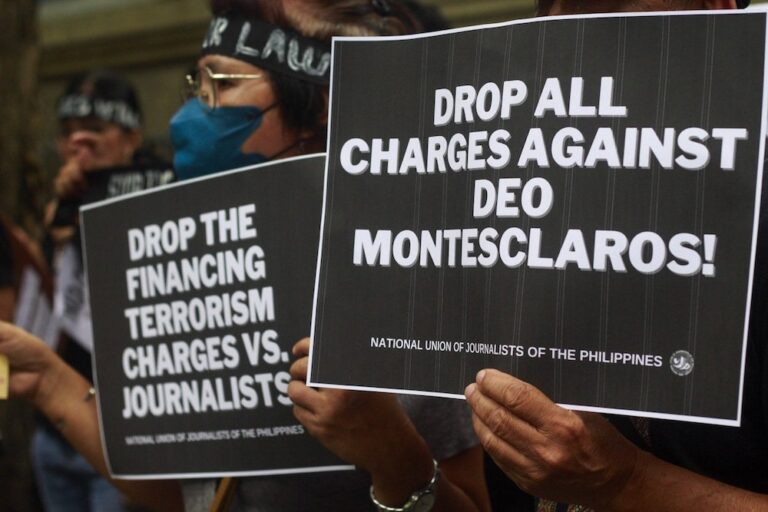The right to information and freedom of expression should be in the agenda of press and public discourse in the 2013 elections, and should help transform an otherwise ho-hum election into a national discourse that's more meaningful, says CMFR.
UPDATE from CMFR: FOI will be passed in the 16th Congress, says Poe (6 September 2013)
(CMFR/IFEX) – The following is a CMFR blog entry by Luis V. Teodoro, deputy director of CMFR and former dean of the University of the Philippines College of Mass Communication, where he teaches journalism.
Access to government-held information is the necessary condition for transparency in governance, and for empowering the citizenry to hold its elected officials to account. It is equally crucial to freedom of expression (FOE), the exercise of that right being premised on citizen possession, understanding, appreciation and utilization of accurate and meaningful information.
Freedom of Information (FOI) is as important to the exercise of press freedom. Without reliable information on the governments they are tasked to monitor, journalists cannot discharge their “fourth estate” duties in a democracy.
But access to information is above all a human right. Only when armed with reliable information can human beings take control of the social and natural environments that define their existence, and realize the freedom essential to being human.
These truths notwithstanding, the 15th Congress went on recess without discussing the FOI bill in the plenary. The bill, which includes provisions drawn from the third Malacañang version as well as those other versions filed by other congressmen, did manage to pass the House Public Information Committee despite the foot-dragging of the Committee chair and the obvious attempts of congressmen opposed to it to stall it for as long as possible. But it never reached the plenary body for discussion, from where it would have otherwise gone to the bicameral committee where it would have been reconciled with the version the Senate had already passed.
Not even the most optimistic are hoping that the bill still has a chance to become law when the 15th Congress reconvenes in June for two days. As unlikely as that sounds, two days being too short a time for it to be debated in the plenary and forwarded to the bicameral committee, what’s even more unlikely is for the 16th Congress to consider the bill as approved by the House Committee on Public Information, only those bills that have passed the bicameral committee having been so considered in the past. As FOI advocates fear, the FOI bill will have to go back to square one when the 16th Congress convenes in July.
Obviously, whether the bill – and all other bills that have passed the House committees, including one granting workers a P125 across the board wage increase – will become law will depend on the 16th Congress, the composition of which is unlikely to change much after the May elections.
As in the senatorial elections, which incumbents and those candidates from known political families are likely to dominate, the contests for House seats are likely to result in the victory of the incumbents and the candidates from local political dynasties. Although the party list elections are intended to democratize representation, whether they will have enough of an impact on the legislative process to make a difference in the 16th Congress will depend on how well those groups that truly represent the marginalized will do during the elections.
Meanwhile, should the Supreme Court declare the Cyber Crime Prevention Act of 2012 or portions of it unconstitutional, how quickly a new Act or amendments to RA10175 will pass the legislative mill will also depend on the composition of the 16th Congress.
Journalists and free expression groups have their work during the 2013 election season cut out for them. They need to extract from the candidates for the Senate and the House of Representatives clear and precise statements on their position on the FOI bill and the Cyber Crime Prevention Act, and to campaign against those who’re opposed, or will oppose, the first, and who supported, or are likely to support, the second.
The very bottom line is that both the right to information and freedom of expression should be in the agenda of press and public discourse in the 2013 elections, and should help transform an otherwise ho-hum election, in which the politicos have so far been making the same promises they’ve been making for years, into a national discourse that’s more meaningful. Free expression and access to information are far more important to the health of democracies than the clichés and motherhood statements every candidate for public office mouths in his or her quest for voter support.


